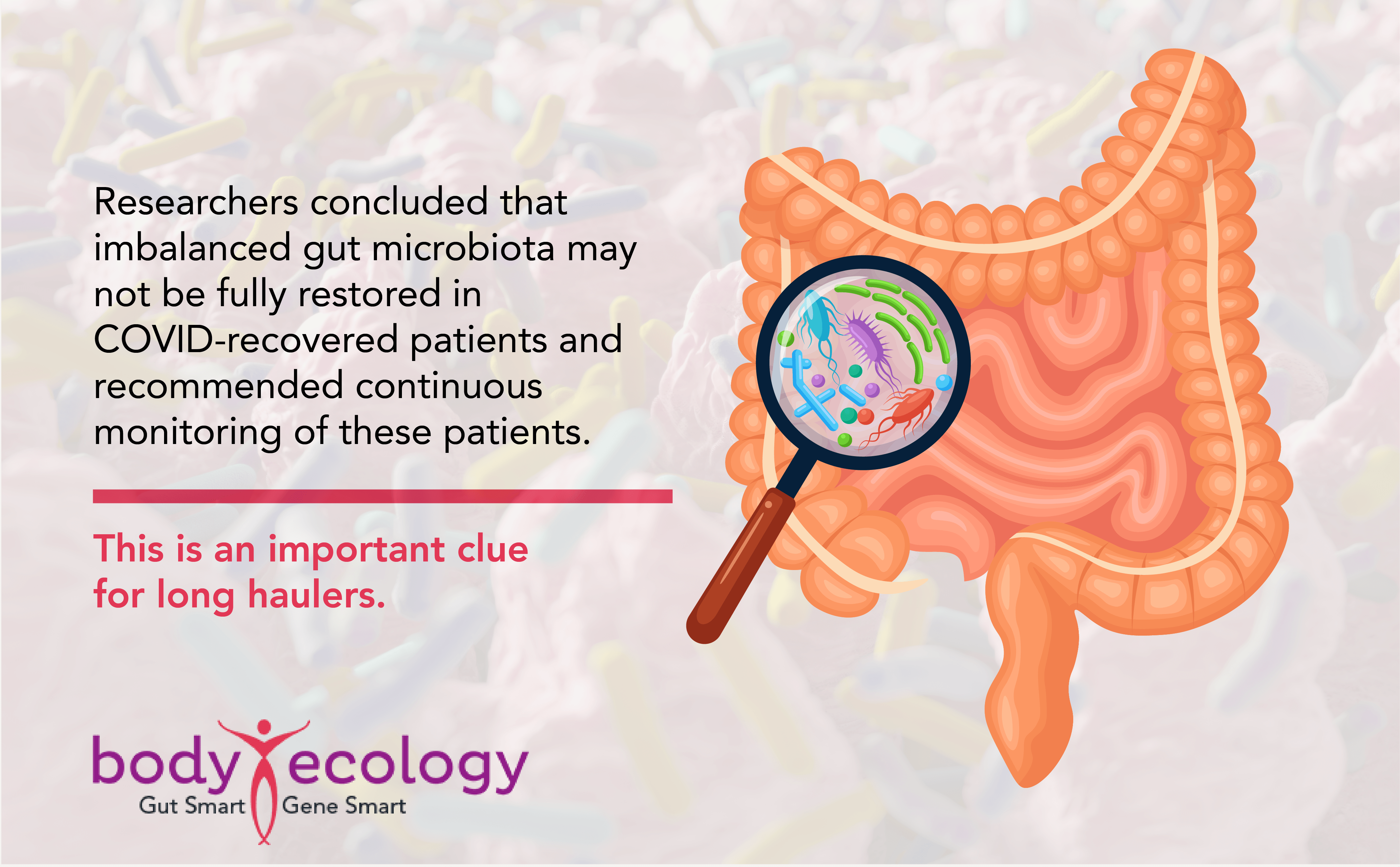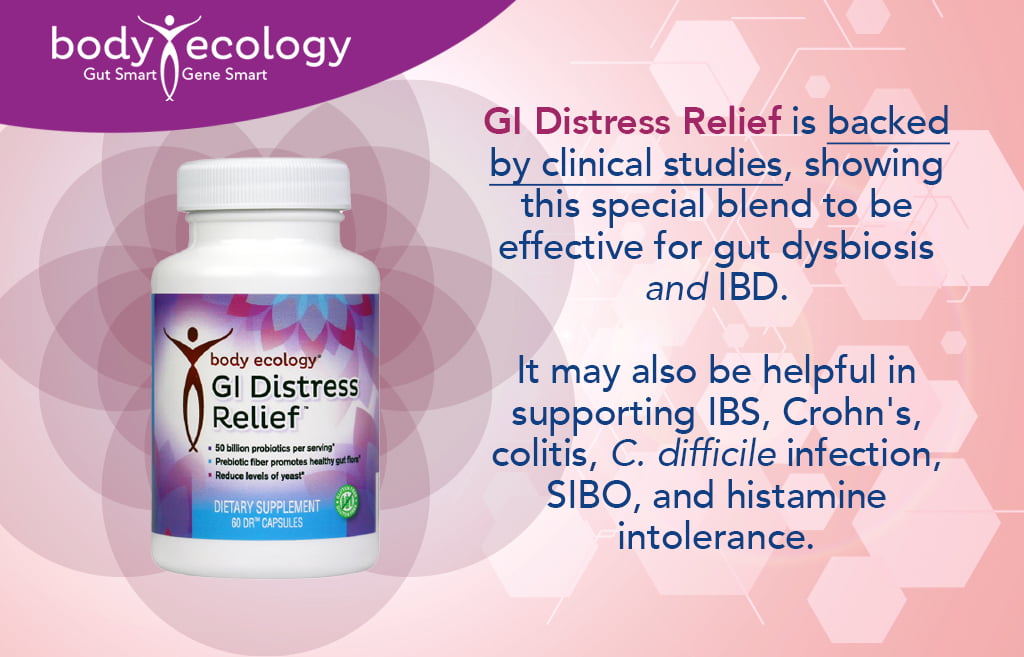
COVID long haulers: Your recovery depends on this
If you’ve had COVID and are still dealing with its aftermath weeks or even months later, you’ve probably wondered if that condition you heard about — long hauler or post COVID syndrome — applies to you. With long hauler syndrome, doctors say you’re cured of COVID-19, but you’re still experiencing symptoms.

There’s a saying in natural medicine: All health starts in the gut. The gut is the body’s first line of defense against most illnesses.1 A healthy gut (and a healthy gut microbiome) usually means a robust immune system.
Unfortunately, most people don’t have a healthy gut microbiome to begin with, so their ability to defend against an immune attack from a powerful invader, such as the SARS-CoV-2 infection, is then considerably compromised. This is a “comorbidity” that the media never tells us about. It’s not just obesity, diabetes, age, or skin color.
Did you know that COVID-19 causes profound and immediate changes in the gut microbiome? Whether you started out with a healthy microbiome or not: If you’ve had COVID, it’s taken its toll on your gut, typically involving a disruption of the microbiome.
An initial focus, then, with long haulers should be to repair the gut and create an environment in which gut microbiota can flourish, and immune function is strengthened. Actually, first and foremost on our list of New Year’s resolutions should be to strengthen our immune system.
A diminished microbiome = a diminished recovery
A very recent study out of Hong Kong found that the composition of one’s gut microbiota could be an indication of how severe the SARS-CoV-2 infection might be for that person and just how compromised their immune function may be as a result of some degree of gut dysbiosis.2
Investigators looked at whether the composition of the gut microbiome could be correlated with the degree of disease severity in these patients, and whether unfavorable microbiome composition, when present, would improve as the SARS-CoV-2 virus was successfully treated.
In the study:
- The researchers gathered patient records, along with blood and stool samples, from 100 patients with confirmed SARS-CoV-2 infections.
- Stool samples were obtained from 27 of the 100 patients up to 30 days after recovering from the SARS-CoV-2 virus.
- The composition of the gut microbiome in these patients was evaluated using DNA sequencing taken from the stool samples.
- Levels of inflammatory cytokines and other blood markers were measured from the blood plasma.
Scientists found that gut microbiome composition had significantly changed in patients with COVID-19 compared with non-COVID-19 individuals, whether or not patients had received medication.
Several beneficial bacteria strains, known to bolster immunity (i.e., Faecalibacterium prausnitzii, Eubacterium rectale, and Bifidobacteria), were diminished in COVID-19 patients and remained low when samples were examined up to 30 days after the infection had cleared.
The degree of suboptimal microbiota was consistent with disease severity and also with elevated levels of inflammatory cytokines and markers, such as C-reactive protein.
With these findings, scientists concluded that:
- A correlation existed between the make-up of the gut microbiota and levels of inflammatory cytokines and other inflammatory markers in patients with COVID-19.
- The gut microbiome impacts the severity of COVID-19 and may alter the patient’s immune responses.
- Gut dysbiosis, following an infection with COVID-19, may explain lingering symptoms.
Another study, conducted in Wuhan, China, where COVID-19 originated, recruited seven healthy men and seven COVID-19-recovered male patients, who had been recovered from COVID-19 for three months.3 Stool samples were taken and analyzed using 16S rRNA sequencing to identify various aspects of the gut microbiota.
Results suggested the gut microbiota was different in male recovered patients compared with the healthy control group. A significant difference was observed in the recovered patients, taking into account various statistical measures commonly used to analyze the composition and diversity of the microbiome.
The comparative abundance of several species of bacteria differed between the two study groups. COVID-recovered patients had higher levels of opportunistic pathogens and lower levels of other strains considered to be anti-inflammatory, short-chain-fatty-acid-producing bacteria.

Love a deal? So do we. Check out our discounted gut health products.
What’s the connection to IBD?
Inflammatory bowel disease (IBD) is a general term that focuses on conditions involving chronic inflammation in the GI tract. Inflammatory diseases of the gut are common pre- and post-COVID.
The two primary types of IBD are ulcerative colitis and Crohn’s disease:
- Ulcerative colitis involves inflammation and sores, or ulcers, that occur in the superficial lining of the large intestine — and in the rectum.
- Crohn’s disease is also characterized by inflammation of the lining of the digestive tract, but it can often involve the deeper layers of the GI tract.
Those suffering from ulcerative colitis and Crohn’s typically experience symptoms like diarrhea, rectal bleeding, abdominal pain, fatigue, and, possibly, weight loss. IBD can be serious, especially when complications occur.
If someone was concerned about their gut health before they fell ill with COVID, it will no doubt have gotten worse. And if they have had COVID, they may think they’re over the viral infection — but they’re left dealing with the aftermath, and this is important to understand.
Those who didn’t have gut dysfunction before contracting COVID-19 almost certainly do now. So, focusing on the gut and repairing it is a key step in recovery for long haulers — and really everyone else. This is often poorly understood and definitely overlooked; many long haulers are not getting well.
This brings us to ACE2: You’re probably well-aware that the SARS-CoV-2 virus enters cells thru the ACE2 receptor and badly damages both the receptor and the cell. ACE2 has a very important function. It transports key amino acids into the body. In the gut, this causes amino acid deficiency that impairs the lining of the gut, creating leaky gut. Gut immunity is also impaired.
A 2017 review study looked at the effects of amino acids on reducing inflammation, oxidative stress, and cell death in the guts of those suffering from IBD.4 Animal models have identified amino acids derived from the diet, which improve IBD, although it’s unlikely that amino acid supplementation alone would be sufficient to replace conventional therapy.
Amino acids are necessary for intestinal growth and to maintain a healthy intestinal barrier:
- The mucosal cells of the small intestine need amino acids to serve as important precursors for building specific proteins, glutathione, nitric oxide, and other molecules.5
- They’re also used as building blocks of substances utilized in intestinal mucosal wound healing and help provide energy for enterocytes (epithelial cells that line the surface of the small and large intestines).6
Amino acid metabolism by the gut microbiota plays an essential role in nutrition and human physiology. Gut bacteria use amino acids to make proteins and various metabolites.7 Animal studies have provided evidence that specific amino acids, notably L-glutamine and L-arginine, may affect the progress of IBD. They reduce inflammation, oxidative stress, and pro-inflammatory cytokines.4 (But see what other amino acids your gut needs below.)
Scientists acknowledge aminosalicylates, corticosteroids, and thiopurines have been shown to decrease the duration of active IBD episodes and encourage remission.4 Unfortunately, these treatments are associated with adverse events, particularly when used long-term.8 Amino acid levels have been shown to vary in IBD patients and in healthy control groups. It’s therefore possible that amino acid profiles and IBD are connected.9
Poor diets in IBD patients are common, and nutritional intervention is often implemented to help correct nutrient deficiencies and improve chronic inflammation. Amino acids, as therapeutic agents, may help to maintain healthy intestinal function in IBD patients.4
How amino acid therapy can support your recovery
L-glutamine, L-glutamate, L-arginine, L-methionine, and L-cysteine (sulfur-containing amino acids), as well as L-threonine, L-tryptophan, L-glycine, L-histidine, and others, were the amino acids mentioned in the study that provided improved intestinal integrity, enhanced antioxidant support in the intestines, and increased beneficial gut microbiota.
And, they function as precursors to other vital molecules, helping to regulate inflammatory responses, bolster immunity, and more.
Body Ecology also has a complete catalog of products that help support, repair, and nourish the gut. GI Distress Relief, mentioned above, is a strong choice, and Just Thrive Gut 4-tify is another great example.
Just Thrive Gut 4-tify is a unique blend of amino acids and polyphenols that provides concentrated, powerful support for the critically important GI mucosal barrier. Gut 4-tify is a potent product to use to help protect and strengthen your intestinal integrity, particularly if you’re a long hauler.
REFERENCES:
- 1. Pitman RS, Blumberg RS. First line of defense: the role of the intestinal epithelium as an active component of the mucosal immune system. J Gastroenterol. 2000;35(11):805-14. doi: 10.1007/s005350070017. PMID: 11085489.
- 2. Yeoh YK, Zuo T, Lui GC, et al Gut microbiota composition reflects disease severity and dysfunctional immune responses in patients with COVID-19 Gut 2021;70:698-706.
- 3. Tian Y, Sun KY, Meng TQ, Ye Z, Guo SM, Li ZM, Xiong CL, Yin Y, Li HG, Zhou LQ. Gut Microbiota in Recovered COVID-19 Patients After 3-Month Recovery. Front Nutr. 2021 May 13;8:638825. doi: 10.3389/fnut.2021.638825. PMID: 34055851; PMCID: PMC8155354.
- 4. Liu Y, Wang X, Hu CA. Therapeutic Potential of Amino Acids in Inflammatory Bowel Disease. Nutrients. 2017;9(9):920. Published 2017 Aug 23. doi:10.3390/nu9090920.
- 5. Wu G. Intestinal mucosal amino acid catabolism. J Nutr. 1998 Aug;128(8):1249-52. doi: 10.1093/jn/128.8.1249. PMID: 9687539.
- 6. Vidal-Lletjós S, Beaumont M, Tomé D, Benamouzig R, Blachier F, Lan A. Dietary Protein and Amino Acid Supplementation in Inflammatory Bowel Disease Course: What Impact on the Colonic Mucosa? Nutrients. 2017 Mar 21;9(3):310. doi: 10.3390/nu9030310. PMID: 28335546; PMCID: PMC5372973.
- 7. Dai Z, Wu Z, Hang S, Zhu W, Wu G. Amino acid metabolism in intestinal bacteria and its potential implications for mammalian reproduction. Mol Hum Reprod. 2015 May;21(5):389-409. doi: 10.1093/molehr/gav003. Epub 2015 Jan 20. PMID: 25609213.
- 8. Mowat C, Cole A, Windsor A, Ahmad T, Arnott I, Driscoll R, Mitton S, Orchard T, Rutter M, Younge L, Lees C, Ho GT, Satsangi J, Bloom S; IBD Section of the British Society of Gastroenterology. Guidelines for the management of inflammatory bowel disease in adults. Gut. 2011 May;60(5):571-607. doi: 10.1136/gut.2010.224154. PMID: 21464096.
- 9. Xin L, Li N, Zhu W, Wu K, Zhang L, Zhai J, Wang Y, Zhu J, Wang X, Shi Y, Li N, Sha L, Wu Z, Zhang P, Wang X. [An analysis of amino acid metabolic profile and its clinical significance in ulcerative colitis]. Zhonghua Nei Ke Za Zhi. 2015 Mar;54(3):210-3. Chinese. PMID: 26269443.









